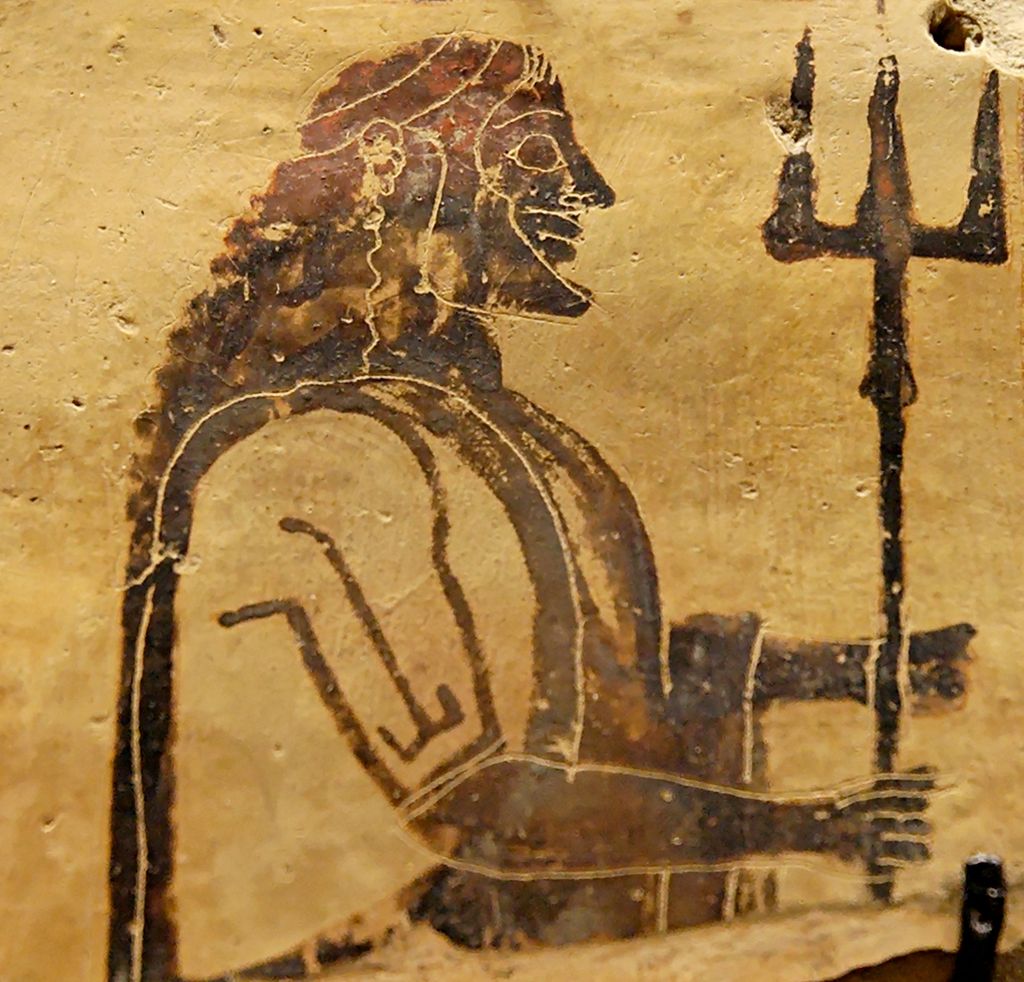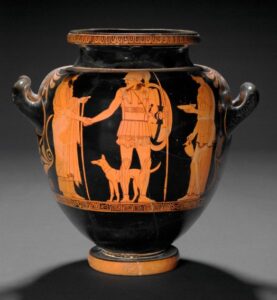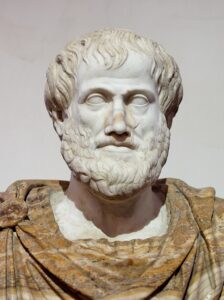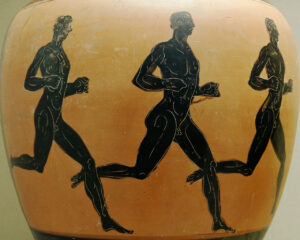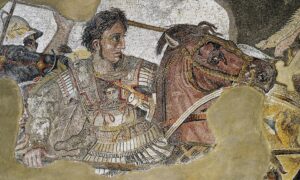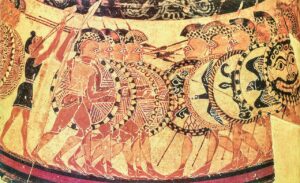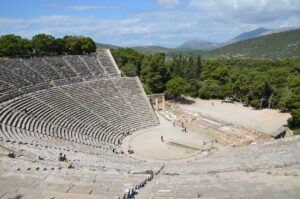Poseidon was the ancient Greek god of the sea, earthquakes, and horses. He was considered one of the twelve Olympian gods and was the brother of Zeus and Hades. He was often depicted as a powerful, bearded man holding a trident, which he used to control the waves and earthquakes. He had a profound impact on the lives of the Ancient Greeks, who revered him for his control over the unpredictable forces of nature and for his role in their daily lives as seafaring people.
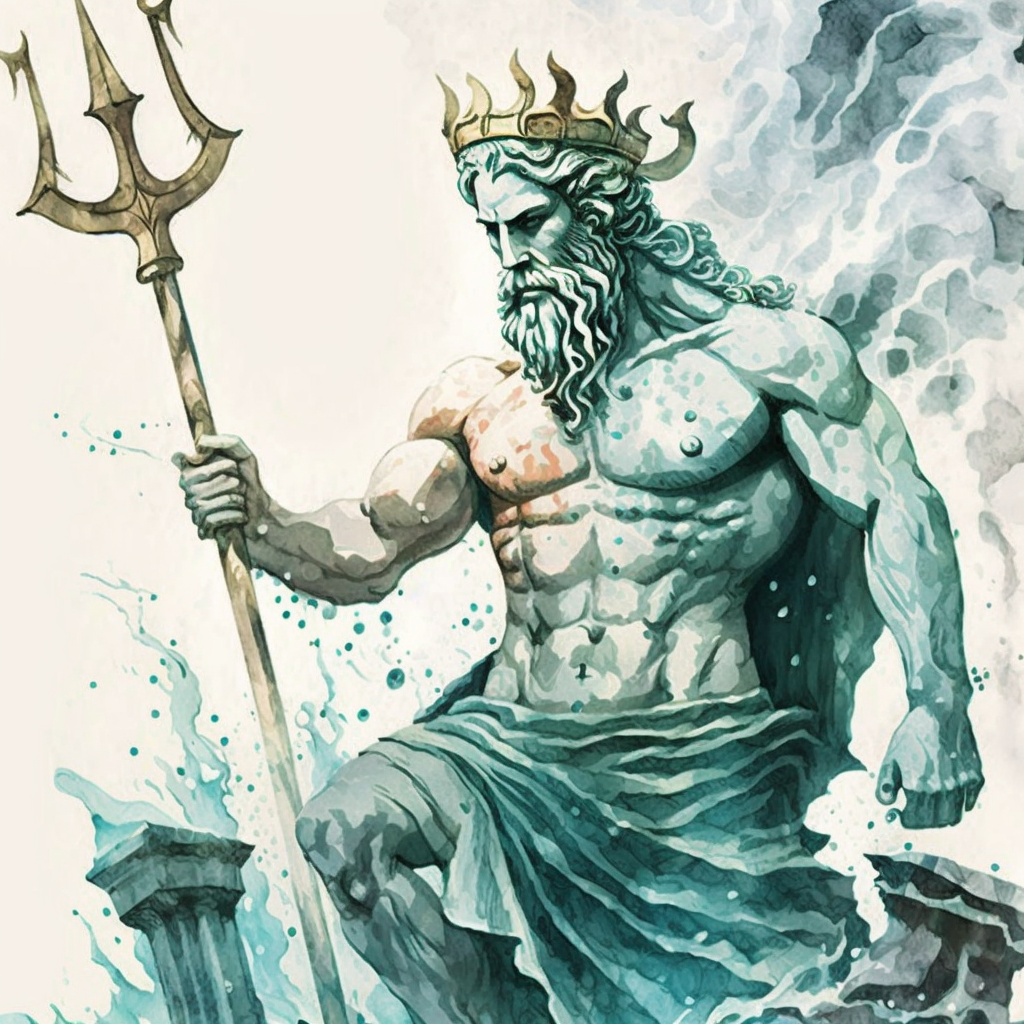
Origins and Family of Poseidon in Ancient Greece
Poseidon was born to the Titans Cronus and Rhea and was the brother of Zeus and Hades. When the Titans were defeated by the Olympian gods, he became the god of the seas and earthquakes, while Zeus became the ruler of the sky and Hades took control of the underworld.
Despite his status as a major god in ancient Greek mythology, Poseidon was known for his emotional nature and was often depicted as a volatile figure who could unleash his wrath upon the sea with great force.
Poseidon’s Role in Ancient Greek Mythology
Poseidon played a major role in many of the myths and legends of ancient Greece. He was often depicted as a powerful and vengeful god who used his control over the seas to punish those who angered him. As stated above, he was associated with the seas. However, he was also associated with horses, and was sometimes called “the Earth-Shaker” due to his power over earthquakes. He was said to control the waves, earthquakes and was responsible for the creation of the first horse and chariot.
Ancient Greek mythology includes several stories about Poseidon. Some of the most well-known stories about him include:
- The story of his rise to power, in which he, along with Zeus and Hades, overthrew their father Cronus to become one of the twelve Olympian gods.
- The story of his rivalry with Athena for control of the city of Athens, which ultimately led to the city being named after Athena.
- The story of his role in the creation of the first horse and chariot, in which he was said to have created the first horse by striking the ground with his trident.
- The story of his punishment of Odysseus, in which Odysseus blinded Poseidon’s son, the Cyclops Polyphemus, and Poseidon punished Odysseus with a long and difficult journey home.
- The story of the contest with Apollo for the city of Delphi, in which Poseidon and Apollo competed to become the patron of the city by striking the earth with their tridents to see who could create the best source of water. Apollo won the contest by creating a beautiful and useful source of water, while Poseidon created a saltwater spring.
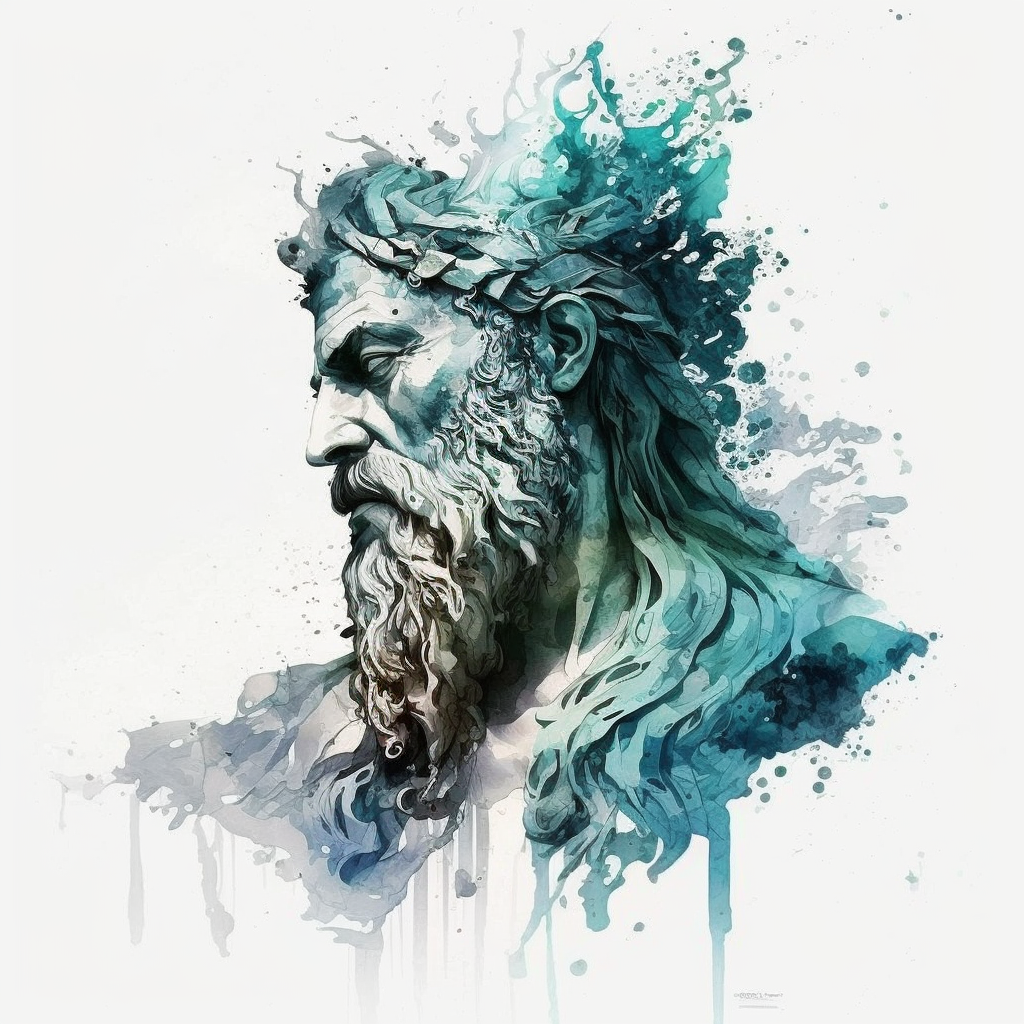
Significance of Poseidon in Ancient Greece
The Ancient Greeks held Poseidon in high regard and built many temples and shrines in his honor. He was widely worshiped and revered, particularly by sailors and those who lived near the coast. They made offerings to him in order to appease his wrath and to ensure a safe voyage for their ships. These offerings often took the form of food, wine, and animals, which were left at the feet of statues of the god or thrown into the sea as a symbol of gratitude.
He was also honored with a number of festivals and rituals, including the Poseidonia, a festival that was held in his honor each year. During this festival, the people of Ancient Greece would offer up prayers and make offerings to him in order to ensure a safe and bountiful year for the seas.
In terms of legacy, his image and symbols (such as the trident) have been used in art and popular culture since ancient times and he’s still an important figure in the Greek mythology. Many places and objects are named after him like the sea, oceans, and earthquakes.

